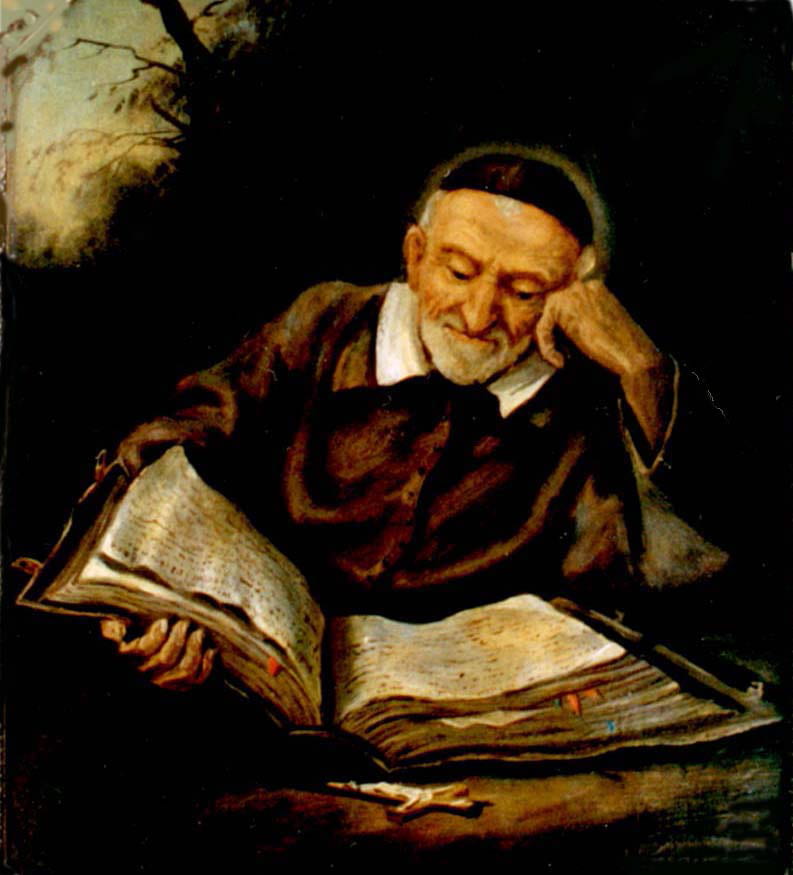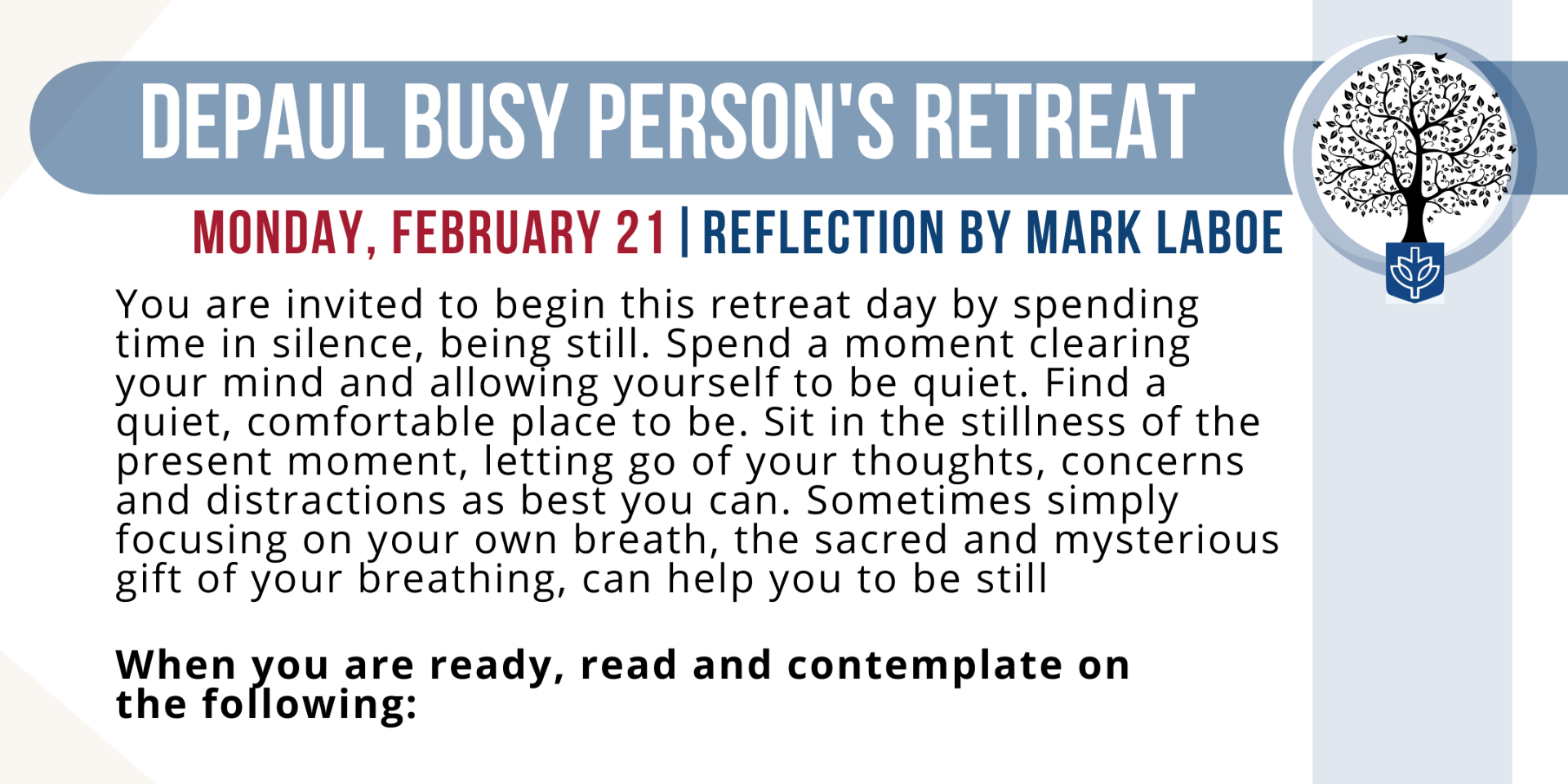Freeing Yourself
Go, learn how to free yourself and to be open to God’s Will; let that be your lesson.[i]
Vincent de Paul was very familiar with retreats. Not long after founding the Congregation of the Mission (better known to us as the Vincentians), he began to develop and lead retreats for those about to be ordained as priests, a responsibility he greatly honored and a singular ministry of the Vincentians that lasted long after his death.[ii] Vincent and his community recognized something almost 400 years ago that we still value today: the importance of setting time aside and creating space for learning and reflection that is apart from our ordinary lives. This is so we can free ourselves, as best we can, from worries and distractions, to be led by the spirit where we are intended to go.[iii] Despite the passage of time and the differences in delivery, this week’s online Busy Person’s Retreat has provided a similar opportunity for you that Vincent’s retreats provided to their participants.
Before our retreat draws to its close, we want to invite you to reflect one more time. To pause and consider: what will I take with me from this experience? What lesson have I learned? How has God (however I may conceive of God: the Spirit, the Universe, my Higher Power, or that pure, quiet voice within), been revealed to me through the Busy Person’s Retreat?
Perhaps, upon reflection, this week did not reveal to you the need for any sort of life-altering change. Maybe you felt God’s presence more quietly, implicitly. That is appropriate … and even to be expected. Vincent de Paul himself recognized that many things, including the workings of God, happen little by little and that beginning small is probably for the best.[iv]
What is true is that you had an impulse to participate in this Busy Person’s Retreat and you said yes to this impulse. In the future, you will have more opportunities, more invitations, for personal growth and spiritual renewal. Vincent de Paul would urge us to say yes to these opportunities. By doing so, we will become more and more able to hear and welcome the voice of God.
Reflection
When you feel you’ve finished this Busy Person’s Retreat, reflections and all, close your eyes and take a few deep breaths. End your experience with a moment of gratitude … gratitude for connecting, even briefly, with yourself and with something bigger than yourself. Sit with this feeling of gratitude for a few moments.
There are multiple opportunities within our DePaul community and beyond for you to continue to nurture your spiritual self. Sign up for the Division of Mission and Ministry’s e-newsletter to learn about programs and services for faculty and staff. Make a point of starting your week by reading our Mission Mondays in DePaul’s Newsline every Monday for more chances to reflect and connect with our mission.
Perhaps this Busy Person’s Retreat has motivated you to think about habits or behaviors that you would like to introduce into your life. Or, alternatively, you may have identified those that you wish to minimize. A helpful exercise to assist you in identifying both life-giving and draining activities is called Stop – Start – Continue. Take a look!
Reflection by: Tom Judge, J.D., Chaplain, Division of Mission and Ministry
[i] Conference 205, “Indifference (Common Rules, Chap. II, Art. 10),” May 15, 1659, CCD, 12:197. Available online at https://via.library.depaul.edu/vincentian_ebooks/36/.
[ii] For a brief summary of Vincent’s life, visit “St. Vincent de Paul, Apostle of Charity,” St. Vincent de Paul Church, accessed February 2, 2023, http://www.svdp-richboro.org/vincent.htm.
[iii] As in the quote that opens my reflection: “Go, learn how to free yourself and to be open to God’s Will; let that be your lesson.” Conference 205, CCD, 12:197. Available online at https://via.library.depaul.edu/vincentian_ebooks/36/.
[iv] As Vincent once wrote, “God’s works are not done all at once, but little by little” (letter 2774, “To Jean Martin, Superior in Turin,” January 17, 1659, CCD, 7:454. Available online: https://via.library.depaul.edu/vincentian_ebooks/32/). Vincent also said, “It is … fitting, therefore, for you to undertake this work [mission] in a humble way. Begin with something small and have great love for your own abjection. That is the spirit of Our Lord; that is how He acted, and that is also the means of attracting His graces (letter 1972, “To Jean Martin, Superior, in Turin,” December 10, 1655, CCD, 5:485. Available online: https://via.library.depaul.edu/vincentian_ebooks/30/).






